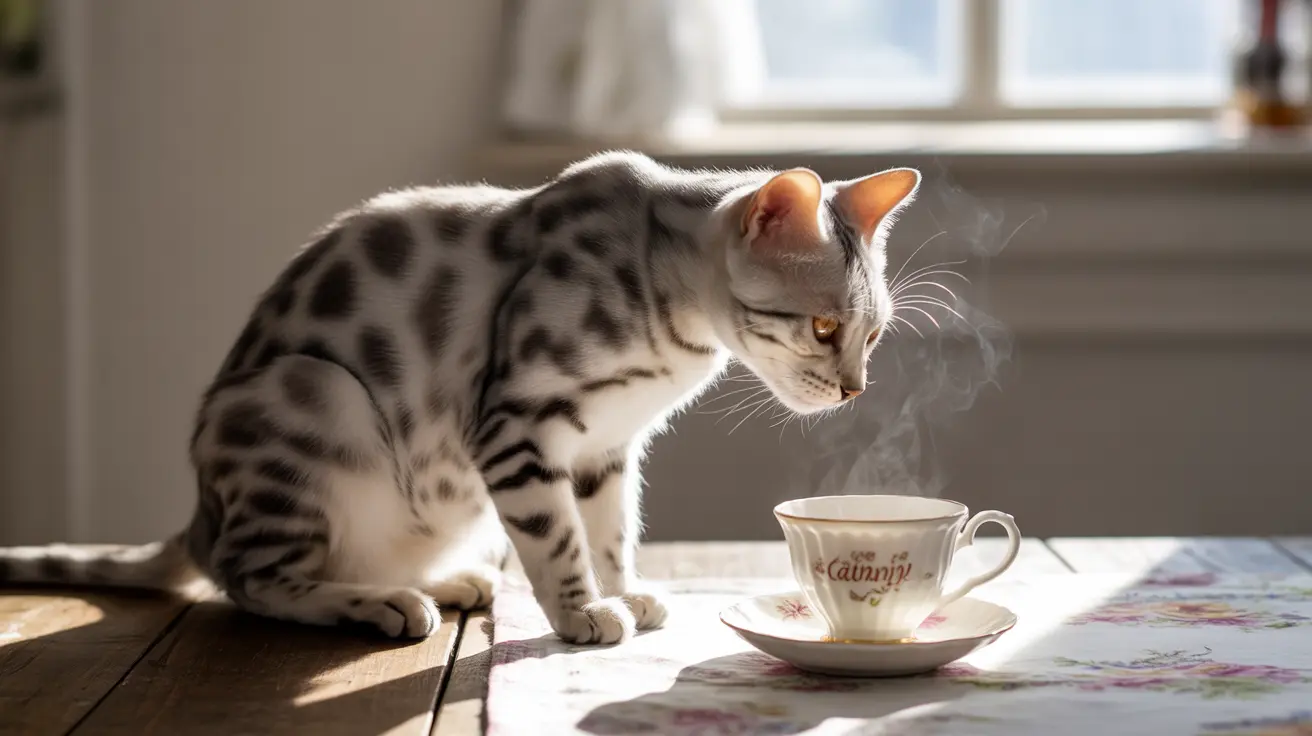While catnip is famous for its euphoric effects on our feline friends, many people wonder about its safety and benefits for human consumption. This comprehensive guide explores everything you need to know about eating catnip, from its traditional uses to safety considerations and preparation methods.
Catnip (Nepeta cataria), a member of the mint family, has been used in human herbal medicine for centuries. While it's generally safe for most adults when consumed in moderate amounts, there are important guidelines and precautions to understand before adding it to your herbal repertoire.
Understanding Catnip for Human Consumption
Unlike its stimulating effect on cats, catnip typically has a mild sedative effect on humans. The herb contains nepetalactone, the active compound responsible for both its feline-exciting and human-calming properties. When consumed by humans, it's most commonly prepared as a tea or used in herbal supplements.
Safe Consumption Methods and Dosage
The most common and safest way to consume catnip is as an herbal tea. To prepare catnip tea:
- Steep 1-2 teaspoons of dried catnip leaves in hot water for 10-15 minutes
- Strain before drinking
- Limit consumption to 2-3 cups per day
- Start with a small amount to test your body's reaction
While tea is the preferred method, some people also use catnip tinctures or topical applications. However, these should be approached with greater caution and ideally under professional guidance.
Potential Benefits for Humans
Traditional herbalists have long attributed various health benefits to catnip consumption:
- Mild sedative effects that may help with sleep and anxiety
- Potential digestive benefits, including relief from gas and stomach discomfort
- Natural insect repellent properties
- Possible mild pain-relieving effects
- Anti-inflammatory properties
Important Safety Considerations
While catnip is generally considered safe for adult consumption in moderate amounts, several important precautions should be noted:
Who Should Avoid Catnip
- Pregnant and breastfeeding women
- Children
- People with scheduled surgeries
- Individuals taking certain medications, especially sedatives
- Those with heavy menstrual periods or pelvic inflammatory disease
Potential Side Effects
Even in healthy adults, excessive catnip consumption can lead to:
- Headaches
- Nausea and vomiting
- Drowsiness
- Dizziness
- Digestive upset
Frequently Asked Questions
Can you eat catnip safely, and what are the potential risks?
Yes, adults can safely eat catnip in moderate amounts, particularly as tea. However, risks include potential drowsiness, digestive issues, and interactions with medications. It's important to start with small amounts and monitor your body's response.
How do I make catnip tea at home, and what are the benefits?
To make catnip tea, steep 1-2 teaspoons of dried catnip leaves in hot water for 10-15 minutes. Benefits may include relaxation, improved sleep, and digestive comfort. Always use food-grade catnip, not pet products.
Is catnip safe for children or pregnant women to consume?
No, catnip is not recommended for children or pregnant/breastfeeding women due to potential risks including excessive drowsiness and uterine stimulation.
Can catnip interact with other medications I'm taking?
Yes, catnip can interact with various medications, particularly sedatives, lithium, and other herbs with sedative properties. Consult your healthcare provider before using catnip if you're taking any medications.
Does catnip have actual health benefits for humans beyond its effects on cats?
While research is limited, traditional use suggests benefits including mild sedation, digestive aid, and natural insect repellent properties. However, most benefits are based on anecdotal evidence rather than clinical studies.
Remember to always consult with a healthcare provider before adding catnip to your wellness routine, especially if you have existing health conditions or take medications.






